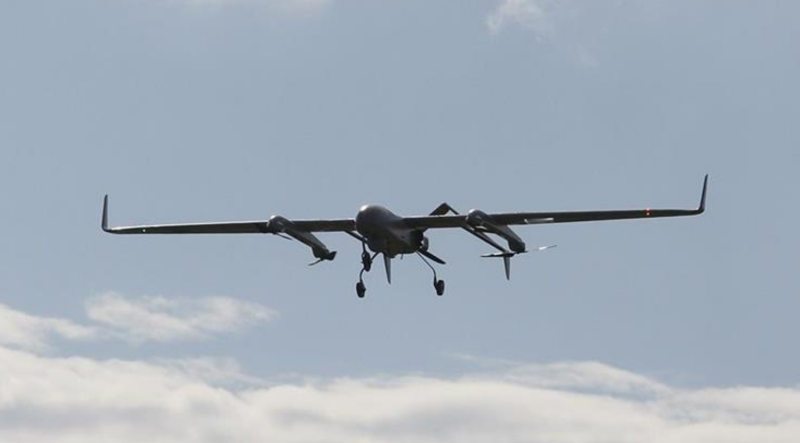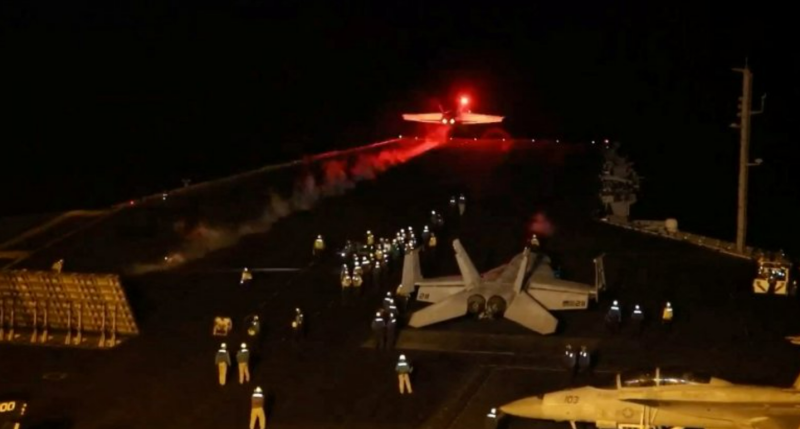Member Of Al Qaeda In Yemen Says Group Directed Charlie Hebdo Attack


(AP) — Al-Qaida in the Arabian Peninsula directed the attack against the French satirical magazine Charlie Hebdo in Paris "as revenge for the honor" of Islam's Prophet Muhammad, a member of the group told The Associated Press on Friday.
At least one of the two brothers involved in the attack travelled to Yemen in 2011 and either received training from or fought alongside the group, according to U.S. and Yemeni officials. A U.S. intelligence assessment described to the AP shows that Said Kouachi was trained in preparation to return home and carry out an attack.
If confirmed, the attack would be the first time al-Qaida's branch in Yemen has successfully carried out an operation in the West after at least two earlier attempts.
Soon after, the branch's senior cleric Sheikh Harith al-Nadhari issued a recording on the group's Twitter feed commenting on the "blessed raid on Paris." He denounced the "filthy" French and called them "the heads of infidelity who insult the prophets." He praised the "hero mujahedeen" who he said "taught them a lesson and the limits of freedom of speech."
Al-Nadhari stopped short of directly claiming responsibility for the attack, but added, "How can we not fight those who hurt our prophet, slandered our religion and fought the faithful."
Addressing the French, he said, "It better for you to stop striking Muslims so you can live in peace. But if you only wish for war, then rejoice, you will not enjoy peace as long as you wage war on God and his prophets and fight Muslims."
It was not immediately clear why al-Nadhari did not outright said al-Qaida in the Arabian Peninsula was behind the attack. The member told the AP that the group as delaying its official declaration of responsibility for "security reasons."
"The leadership of AQAP directed the operations and they have chosen their target carefully as revenge for the honor of the prophet," the al-Qaida member said. He said France was targeted "because of its obvious role in the war on Islam and oppressed nations."
He warned that "touching Muslims' sanctity and protecting those who make blasphemy have a dear price and the punishment will be severe" and that "the crimes of the Western countries, above them America, Britain and France will backfire deep in their home."
He said the group will continue the policy by al-Qaida chief Ayman al-Zawahri of "hitting the snake's head ... until the West retreats." He also cited the late al-Qaida leader Osama bin Laden's warnings of the consequences of blasphemy against Muslim sanctities.
The member spoke on condition of anonymity because he is not authorized by the group to give his name. His same comments in Arabic was later posted on Twitter by users known to be supporters of AQAP.
Witnesses to Wednesday's assault in Paris said Said Kouachi, the elder of the two brothers who stormed the Charlie Hebdo offices, claimed allegiance to the Yemeni group during the attack. His 32-year-old brother, Cherif Kouachi, was convicted of terrorism charges in 2008 for ties to a network sending jihadis to fight U.S. forces in Iraq. The brothers were killed Friday in a gunbattle with French police.
A Yemeni security official said Said Kouachi is believed to have fought with al-Qaida in the Arabian Peninsula in 2011 in Abyan province.
At the time, al-Qaida fighters had taken advantage of a security vacuum during an uprising that eventually ousted President Ali Abdullah Saleh. The militants seized several towns and cities in the south of the country. Abyan province was an al-Qaida stronghold from which the group launched attacks against government forces and new offensives to seize more territory.
The second Yemeni official said Kouachi was believed to be among hundreds of foreigners deported in 2012, when the government expelled many foreign students, fearing they were there under the pretext of studying Arabic but were in fact linking up with al-Qaida.
Both officials spoke to The Associated Press on condition of anonymity because of an ongoing investigation into Kouachi's stay in Yemen.
U.S. officials believe French authorities knew Kouachi traveled to Yemen, but it's not clear whether they knew what he did there. Still, French authorities placed both Kouachi brothers close surveillance when he returned. The officials believe the brothers led a normal life for long enough that the French began to view them as less of a threat and reduced the surveillance.
A U.S. law enforcement official said both Kouachi brothers had raised enough concern to be placed on the no-fly list. He spoke on condition of anonymity to discuss an ongoing investigation.
Previously, al-Qaida's Yemen branch directed the December 2009 attempt to bomb an American passenger jet over Detroit. The would-be bomber, Nigerian Umar Farouk Abdulmutallab, who failed the detonate explosives on his body, went to Yemen to prepare for the attack and may have met with radical American-Yemeni cleric Anwar al-Awlaki, linked to al-Qaida. Al-Awlaki was killed in a U.S. drone strike in September 2011.
In 2010, the group attempted to send bombs in packages to be delivered to targets in the United States, but the packages were intercepted on flights through Europe and the United Arab Emirates.

The Yemeni Houthis claimed on Thursday to have shot down a US drone in western Yemen and attacked US Navy ships in the Red Sea, as Washington escal…

Yemen’s Houthis said a strike they blamed on the United States killed a guard at a communications tower on Thursday, as the Houthi media repo…

The death toll from U.S. airstrikes on Houthi-controlled areas in northern Yemen since March 15 has risen to 61, with 139 others injured, the Houth…